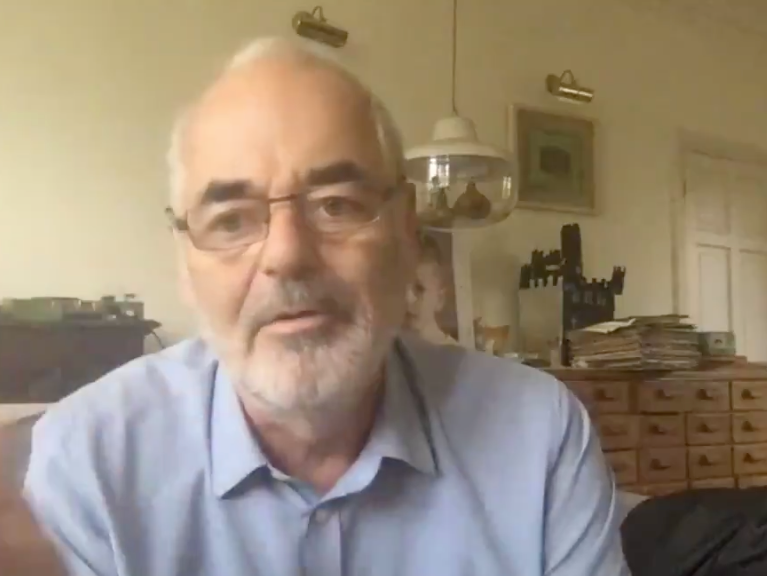
The government’s daily coronavirus briefings are “not trustworthy communication of statistics”, according to a leading scientist who has been advising ministers during the pandemic.
Data given during the briefings is “completely embarrassing” and amounts to “number theatre”, said Professor Sir David Spiegelhalter, who sits on the government’s Scientific Advice Group for Emergencies (Sage).
Professor Spiegelhalter pointed out that that daily testing numbers also included tests which had been posted to people and not yet recorded, and were therefore “inaccurate”.
Download the new Independent Premium app
Sharing the full story, not just the headlines
“We get told lots of big numbers, and precise numbers of tests being done – 96,878,” he told the BBC’s Andrew Marr Show.
“Well that’s not how many were done yesterday. It includes tests that were posted out. We’re told 31,587 people have died. No they haven’t. It’s far more than that.”
The professor, also chair of the Winton Centre for Risk and Evidence Communication at the University of Cambridge, continued: “I think this is not a trustworthy communication of statistics. It’s such a missed opportunity. There’s a public out there who are broadly very supportive of the measures, they’re hungry for details, for facts, for genuine information.
“And yet they get fed this, what I call number theatre, which seems to be coordinated really much more by No 10’s communications team, rather than genuinely trying to inform people about what’s going on.”
He added: “I just wish the data was being brought together and presented by people who really knew its strength and limitations and could treat the audience with some respect.”
When asked by Marr later on the programme whether, in response to the criticism, the government would rethink the way they present the numbers, communities secretary Robert Jenrick said: “Well, I’m sure there’s ways we can improve these press conferences.
“They continue to get large audiences, but they’re designed to inform the public. If there are better ways of presenting the numbers – and I very strongly respect the professor – if we can do that, we should and will do that.”
Ministers have cited the views of Professor Spiegelhalter a number of times during the pandemic.
When questioned about the death toll by Labour leader Keir Starmer during prime minister’s questions on Wednesday last week, Boris Johnson said: “I would echo what we’ve heard from Professor David Spiegelhalter and others: that at this stage, I don’t think that international comparisons and the data is yet there to draw all the conclusions that we want.”
It comes as the prime minister is expected to unveil a new colour-coded alert system as he eases some lockdown restrictions in Sunday night’s daily briefing. It is thought he is going to drop the government’s “stay at home” messaging in favour of “stay alert” – sparking further accusations of mixed messaging and immediate rejections from Scotland and Wales.



